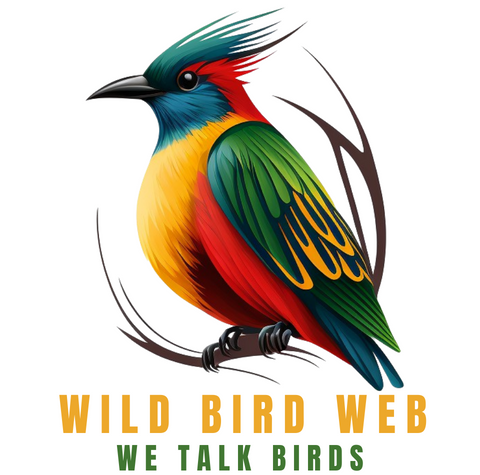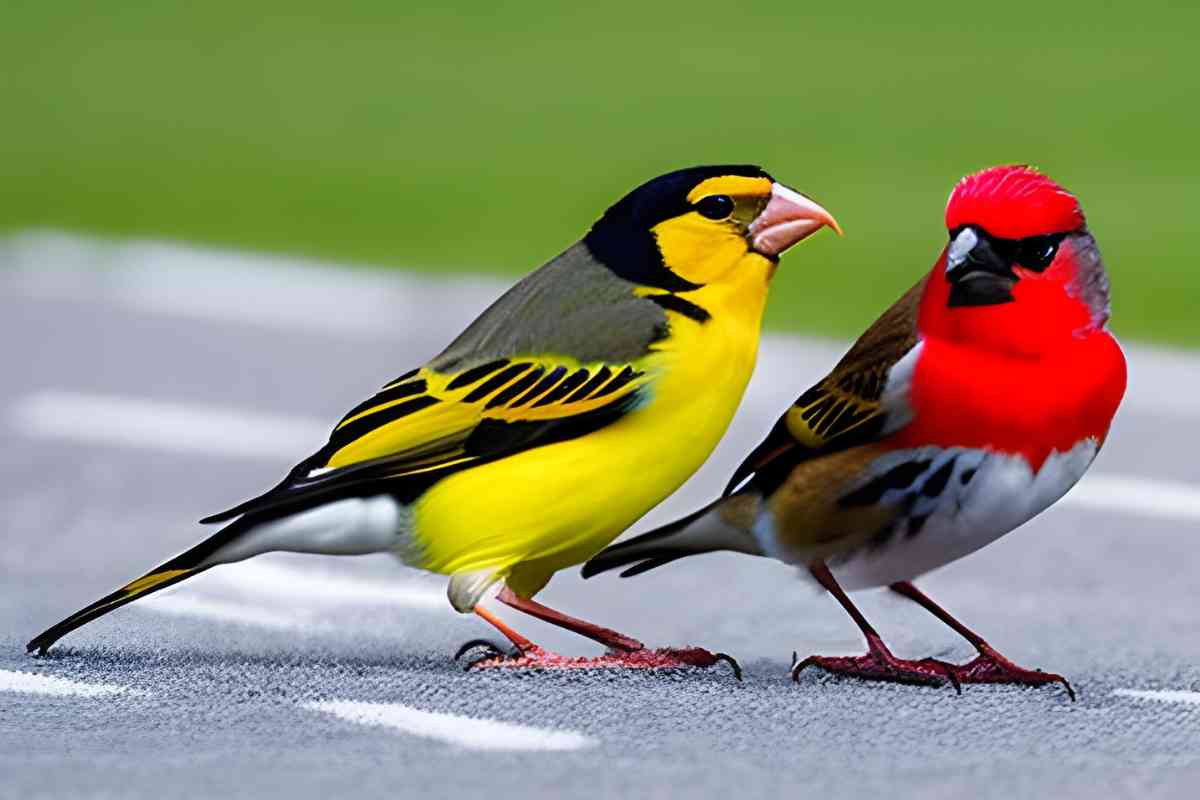Are you a bird lover who is wondering about how to train a finch? Training a finch can be an incredibly rewarding experience, but it requires patience, consistency, and knowledge. Whether you want to tame your finch or teach it new tricks, this blog post will provide you with all the insights and tips needed to successfully train your feathered friend.
How to tame a finch?
Taming a finch is the first step towards successfully training it. The process of taming can take some time, depending on your finch’s personality and background. Start by placing your hand inside the cage for a few minutes each day so that your bird gets used to seeing you around.
Once they are comfortable with your presence, start offering treats through the cage bars. This will help build trust between you and your bird. Gradually increase the amount of time you spend interacting with them, until you can put your hand in without causing any stress or anxiety.
When trying to handle a new finch outside its cage for the first time, make sure to do it in an enclosed space where they cannot escape or get hurt. Use gentle movements when handling them and always speak softly to prevent scaring them.
How to teach a finch to step up?
One of the basic commands you can teach your finch is how to step up on your finger or perch. This command helps you handle and move your bird around with ease.
The first step in teaching a finch to step up is to establish trust. Spend time near the cage, offer treats and speak softly to help build a bond. Once your bird seems comfortable with you, it’s time to start training.
To begin, place your hand near the cage opening and wait for your finch to approach. When they get close, gently touch their belly feathers while saying “step up.” Repeat this process several times until they become familiar with the phrase.
Next, hold out a finger or perch and repeat the “step up” command again as you encourage them towards it. If they successfully step onto your finger or perch, reward them with praise and a treat.
If at any point during training your finch becomes frightened or uncooperative, take a break and try again later. With patience and consistency, most birds will learn this simple but useful command within a few weeks of training!
How to teach a finch to sing?
Teaching your finch to sing is one of the most rewarding experiences you can have as a pet owner. While some finches are naturally gifted singers, others may need a little more guidance. Here are some tips on how to teach your finch to sing.
Firstly, it’s important to expose your finch to different types of music and sounds. This will help them develop their own unique singing style. You can play classical music, bird songs or even whistle tunes yourself.
Next, create a positive environment for your finch by providing plenty of toys and perches in their cage. A happy and comfortable bird is more likely to sing.
Once your finch starts making noises, reward them with treats or praise. Positive reinforcement will encourage them to continue singing.
Another technique is called “song matching”. Play a recording of another bird singing and see if your finch tries to mimic it. If they do, reward them again with treats or praise.
How to teach a finch to do tricks?
Teaching a finch to do tricks can be a fun and rewarding experience for both you and your feathered friend. Before getting started, it’s important to keep in mind that not all finches may be interested or capable of learning tricks.
The first step is to establish trust between you and your finch by taming them. Once they are comfortable around you, begin introducing simple commands like “up” or “down” while holding their perch. Reward them with treats when they comply.
Once your finch is responding well to basic commands, try teaching them more advanced tricks such as retrieving objects or flying through hoops. Start small and gradually increase the difficulty level as your bird becomes more confident.
Remember that patience and consistency are key when training any animal, including finches. It may take several sessions before they fully understand what is expected of them.
Always use positive reinforcement methods such as praise and treats instead of punishment or forceful techniques which could harm the bird physically or emotionally.
How to deal with a finch that is not cooperating?
So, you’ve been trying to train your finch but it seems like they just aren’t interested in cooperating. Don’t worry, this is a common issue among bird owners and there are some things you can do to try and overcome it.
Firstly, it’s important to remember that birds have their own personalities and preferences, just like humans. Some finches may be more willing to learn than others. With patience and persistence, however, even the most stubborn bird can eventually learn new behaviors.
One key thing to keep in mind when training your finch is consistency. Make sure you’re using the same cues or commands each time you attempt to teach them something new. This will help your bird understand what is expected of them.
If your finch still isn’t responding positively to training efforts, consider changing up your approach or technique. Try using positive reinforcement such as treats or praise whenever they do exhibit the desired behavior.
How to prevent your finch from getting bored?
Finches are active birds that need to be constantly stimulated in order to stay happy and healthy. Boredom can lead to destructive behaviors such as feather plucking, excessive chirping, and even aggression towards other birds or humans. Therefore, it’s important for finch owners to provide their pets with enough entertainment and activities.
One way of preventing boredom is by giving your finch plenty of toys and perches that encourage physical activity. Swings, ladders, bells, balls made out of natural materials like wood or coconut shells are great options for keeping your bird engaged.
Another way of keeping your finch entertained is by providing a variety of foods and treats. Finches love seeds but they also enjoy fresh fruits and vegetables such as apples, spinach or carrots which can be placed in different parts of the cage so that they have to work for their food.
It’s important not to keep your finch isolated from the outside world too much either! Placing the cage near a window where they can watch the world go by or playing soothing music during the day when you’re away can help stimulate their senses without overwhelming them.
Consider getting another bird friend for your finch if he seems lonely. However this should only be done after careful research on compatibility between species!
Preventing boredom will not only improve your pet’s health but it will also make him happier overall – leading to more interactions with you!
How to find a good finch trainer?
Finding a good finch trainer can be challenging, but it’s worth the effort to ensure your feathered friend gets the best care and training possible. Here are some tips to help you find a reputable and knowledgeable trainer.
First, do your research. Look for trainers who have experience working with finches specifically and who use positive reinforcement techniques rather than punishment-based methods.
Next, ask for recommendations from other bird owners or local bird clubs. They may have firsthand experience with trainers in your area and can provide valuable insights into their skills and reputation.
Don’t be afraid to ask questions when interviewing potential trainers. Ask about their experience, qualifications, training methods, success rates with previous clients, and any references they can provide.
It’s also important to observe a trainer in action before committing to their services. Attend one of their classes or watch them work with another client’s bird to get an idea of how they interact with birds and whether their approach aligns with your values.
Did we answer your query about how to train a finch?
Training a finch requires patience, dedication, and a lot of love. It is important to remember that each bird has its own unique personality and learning pace, so it’s essential to work at their speed.
By following the steps we have mentioned in this article on how to train your finch, you can build trust with your feathered friend and teach them new tricks. Remember always to reward good behavior with treats or praise.
If you are struggling to train your finch or want professional help, consider seeking advice from an experienced trainer who specializes in avian care.
Enjoy the process of training your bird! The bond that you will create through training will be unforgettable and provide endless joy for both you and your feathery companion.

